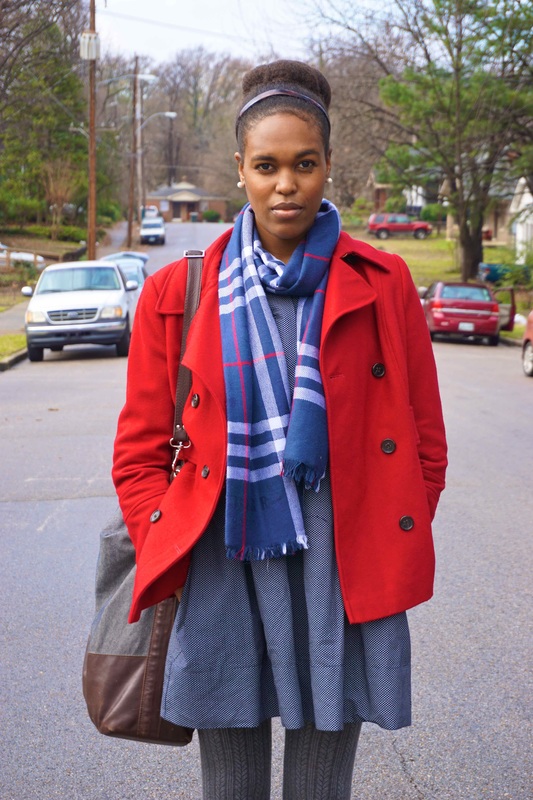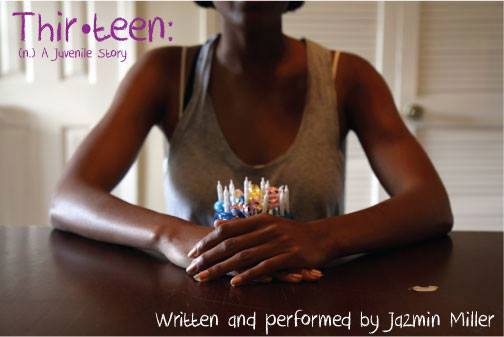“While on a trip to Uganda in 2013, a young girl asked me, ‘What would you do if you came home and your mom and aunts were sitting around a table with a much older man and they told you to pack your stuff, that you were going with him to be his wife or girlfriend? And if you go, the money he pays your mother will feed your brothers and sisters for a long time? That’s what happens in my village when a girl turns sixteen. That’s what will happen to me.’ I didn’t have any answers for her, and I remember how quiet we both were for the rest of the day. When I came back to the States, I thought, Should I move to Africa and fight human trafficking? I don’t have a law degree and I don’t have handcuffs to arrest anyone, but I do have a pen and I know how to use the stage. I’ll write a show on the issue of human trafficking in Uganda. As I researched, more and more information about human trafficking in Memphis popped up. I began to realize how much was going on right here in our city, so that’s where I turned my focus. I was especially drawn to the children who are victimized. The average age for getting pulled into trafficking is 13, and I wanted to find out why. I pictured young girls being snatched off the streets and forced into prostitution, but when I talked to the pimps, they told me that they don’t need to do that when there are so many little girls who have such a deep need to feel loved and taken care of. All the pimps have to do is sweet-talk the girls, give them a compliment, and within seconds they can tell whether or not they have them. We as a community need to ask what has happened in these girls’ lives to make them so vulnerable. So often it’s a dad wound, a step-dad wound, or an uncle-wound that’s a defining moment for them. Maybe they’ve been raped or hurt somehow and that’s made them susceptible to men whose intent is to prey on them. For a lot of girls, the pimp is the first one who’s ever made them feel special. They see him as a lover-boy or a dad-figure. If it were my first time to feel that important to someone, I’d probably go with him too. We need to ask, What is it about our society that perpetuates this tragedy? What can we do to prevent it?
“My one-woman show Thirteen came out of that year of research, interviews, and analysis. The stories in the play are true and all come together in the character of a 13-year-old girl. I want the audience to take away information from the show but also to leave with a determination to be proactive. That doesn’t mean everybody quitting their jobs so they can fight trafficking full-time. But it also doesn’t mean walking away saying, ‘Oh, that was a great show. It broke my heart. Now let’s go grab a beer or go shopping.’ I want people’s feelings about the show to change what they do. When I mentor middle school girls now, my whole outlook is different. Some girls come from loving families and have had great mentors, moms, dads, uncles, aunts, or brothers who have affirmed their value, but many others haven’t. Those girls especially need to hear that they’re loved and that they’re worth more than they’ll ever know. If no one’s ever said those words to them, I make sure they hear them from me. Then, if a pimp tells a young girl, ‘You’re beautiful!’, she can say, ‘Hey, I’ve heard that all my life. You’re not telling me anything new.’ I think what gets me most is knowing that inside of these girls and women is a little child whose soul-wound has never been attended to.”
“My one-woman show Thirteen came out of that year of research, interviews, and analysis. The stories in the play are true and all come together in the character of a 13-year-old girl. I want the audience to take away information from the show but also to leave with a determination to be proactive. That doesn’t mean everybody quitting their jobs so they can fight trafficking full-time. But it also doesn’t mean walking away saying, ‘Oh, that was a great show. It broke my heart. Now let’s go grab a beer or go shopping.’ I want people’s feelings about the show to change what they do. When I mentor middle school girls now, my whole outlook is different. Some girls come from loving families and have had great mentors, moms, dads, uncles, aunts, or brothers who have affirmed their value, but many others haven’t. Those girls especially need to hear that they’re loved and that they’re worth more than they’ll ever know. If no one’s ever said those words to them, I make sure they hear them from me. Then, if a pimp tells a young girl, ‘You’re beautiful!’, she can say, ‘Hey, I’ve heard that all my life. You’re not telling me anything new.’ I think what gets me most is knowing that inside of these girls and women is a little child whose soul-wound has never been attended to.”
“Thirteen is about a little girl in the foster system who has never learned to read. She meets a friendly, funny man in the park who promises to teach her, and before long, he is in total control of her life. It’s a story of how he gains her trust and why she comes to feel that she owes him a debt she can never repay.”
Jazmin Miller, Playwright / Actress / Rhodes College children's theatre teacher


 RSS Feed
RSS Feed